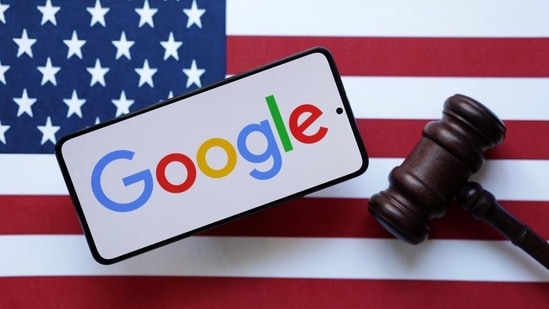If tech companies increasingly choose to create silos to protect themselves from scrutiny, users lose out, the tech ecosystem loses out and innovation suffers.

We are getting ever closer to the expected September release of the next Apple iPhones, but more importantly, iOS 18 and iPadOS 18 that’ll usher in an artificial intelligence suite called Apple Intelligence. Writing tools for emails and documents, summarising emails, turning rough sketches into notes, math notes and an eventual integration of OpenAI’s GPT within the Siri assistant. The world can be excited about it, but not so much if you reside within the European Union (EU). Apple won’t be releasing Apple Intelligence in Europe, at least in the initial phase. They aren’t the only ones.
Across the pond, there have been certain developments, a verdict perhaps delivered at a time when this could simply spiral out of control. Google’s found to have violated antitrust laws by the U.S legal system, a win for the justice department. Albeit it is a partial victory, with Google alleged to have monopolised online search with its search engine – the recorded payments to the tune of $26 billion in 2021 to ensure Search is set as default, not helping its argument. Quite why would they need to pay so much is something Google couldn’t explain after they claimed Google Search was far superior to any other search engine.
Why I say the timing is wrong is that other tech giants including Microsoft, Apple, Meta and Amazon could find themselves in a similar situation in the coming months. At the core of this would be them utilising their popular platforms to their advantage. Where does this really stop? Can at some point in the future, Microsoft be accused of monopolising AI assistants because it has integrated Copilot deeply within Windows 11? Google could claim Microsoft is playing unfairly with Gemini. And vice versa, for Gemini’s integration within Android.
One of the points to that assumed monopoly is Google reportedly paying Apple around $20 million a year to keep Google Search as the default search engine on the Safari web browser for iPhones, iPads and Macs. Eddy Cue, Apple’s senior vice president of services’ comments “There’s no price that Microsoft could ever offer”, was noted in the 286-page verdict. It pretty much shows there is no similarly capable alternative to Google Search. Also, gives Google a serious data access advantage. Microsoft has always said that Bing is the default search engine for Microsoft’s own Edge web browser, available across platforms.
Where, and when, does this antitrust activism stop?
Takes me back to the early 90s, the simpler times when those massive desktops dominated our interactions with PCs (a personal note, mostly on dial-up internet). Microsoft then had gotten into agreements with PC makers to not bundle the Netscape web browser (Netscape Navigator was good, really good) on its computers. They wanted users to make Internet Explorer (a note for the GenZ and GenA: that’d be Edge’s grandad) a habit. Regulators then clamped down on this. Till today, the repercussions are that PC makers are free to include Google Chrome, Mozilla Firefox or any other web browser alongside Edge, on the computing devices they sell.
A decade later, Google simply dominates the web browser business with Chrome across platforms, as well as the operating system business on smartphones with Android, and increasingly ChromeOS is finding a niche with computing devices too. If you look at it, neutering one apparent monopoly leads to the inevitable creation of another.

Could the Google Search verdict prove to be a similar moment?
Global activism, but how much and to what end?
Just last month, Meta said they’ll refrain from releasing their new multimodal Llama 3.1 model in the EU. Apple’s problem is, they believe the Digital Markets Act puts them at a disadvantage because, for the sake of competition, they cannot be seen giving their own apps and services priority treatment. One of the core tenets of DMA is the mandate for interoperability, which Apple believes is to the detriment of users, by compromising their data privacy policies. Meta’s concern is about the GDPR or general data protection regulation, and they do not exactly know how to go about (if at all) making use of customer data as part of AI training sets including Llama.
These two examples I’m referencing aren’t even the proverbial punch in the stomach. Wait for it.
Remember the great PC outage from a few weeks ago? Everyone blamed Microsoft in the early hours of 8.5 million PCs worldwide falling to the charms of the blue screen of death (the more loving terminology of BSODs). Just between us, I did appreciate Microsoft’s clarity of communication at the time. That is what helped the world eventually realise Microsoft wasn’t at fault for the failing PCs, a third-party security company CrowdStrike was.
The EU, for all the good work they did by showing the path to the world with the premiere of the GDPR a few years ago, seems intent on undoing that with layered complexity that’s now become a standard fixture of the regulations that governs tech companies in the region. Apple and Meta are two examples. In stark contrast just across the EU’s borders is the UK, which has similar tech regulation, but a key difference is there’s much less uncertainty. Tech companies aren’t exactly holding back there. Apple and Meta aren’t either.
EU aren’t the only ones erring on the side of too much regulation. Last year, Meta removed all news content from feeds for users in Canada, over the country’s online news act. Google News withdrew from Spain, over a new tax on link curation. In many US states, adult content websites are blocked due to requirements regarding age verification. France is preparing action on Nvidia for its CUDA software, a layer which allows applications to better utilise its line of AI-optimised chips.
In India, Apple has been investigated by the Competition Commission of India since 2021, for its App Store policies, particularly forcing developers to use its own in-app billing system. Google’s gone through the same earlier.

Then, they were also quite forthcoming about the underlying reason for why this could have happened – turns out, an agreement with European regulators in 2009 had forced Microsoft to make structural changes to Windows (it has been true since then) that allowed third-party security companies to get the same sort of privileges as Microsoft’s own security products, the latest in that line being Defender. That’s something Frank X. Shaw, who is Microsoft’s Chief Communications Officer, noted in a note he’d shared in a post on X. Basically, Microsoft had to allow third-party kernel drivers, the root cause of this PC outage debacle.
Apple does not, anymore. In fact, in 2020, Apple locked down kernel extensions in macOS, and the alternative for security service providers and their solutions is to run these extensions in the user space, rather than access the deeper confines of macOS. CrowdStrike has similar endpoint protection suites for Windows and macOS, just that on the system, they work differently and also receive updates differently.
What regulators aren’t realising is, that it may be getting into spaces, which may be better left to tech companies themselves (not to say they are noble, but let the market take its course). Take Microsoft’s Windows operating system for example. If Microsoft was allowed to lock it down the way it had intended (I admit, third-party apps would’ve had limited access as a result), user data and their PCs would’ve been more secure from faulty updates crippling system access.
Then there is Meta’s example. EU wants Meta to have an option for users where no user data will be tracked to serve them personalised ads. The EU also doesn’t like, as it turned out a week or so ago, doesn’t like Facebook and Instagram’s €12.99 per month subscription that removes advertisements and doesn’t collect data. They are right in pointing to a judgement from July last year, by the Court of Justice of the European Union (CJEU), which endorsed a subscription model as a way for people to consent to data processing for personalised advertising.
For years, Intel absolutely dominated the chip business, with more than 80% of PCs being sold year after year, powered by its processors. Just a few days ago, they had to lay off 15,000 employees. Intel is no longer that dominant Intel because the market forces played out that way – Qualcomm, Nvidia and even Apple as well as Google’s own chip efforts, have proved to be far superior over the past few years.
It may just be time that the regulators take a step back to assess what they really want, and in turn what users in the region get, from tech companies. Think of long-term impact too. Mistral, the shining AI example from France, may struggle to innovate the way it has as it competes with OpenAI, Google and Anthropic if Nvidia chooses to leave the market due to a clampdown on their CUDA software. Mistral will struggle to find chips that match Nvidia’s, on performance.
If there is the constant threat of confusing rules, fines and long-drawn arguments, tech companies will do what Apple and Meta are doing. Stay away. Users lose out. The tech ecosystem in the region loses out. Innovation is lost. They’ll lose out fast to markets such as China.
Vishal Mathur is the technology editor for the Hindustan Times. Tech Tonic is a weekly column that looks at the impact of personal technology on the way we live, and vice-versa. The views expressed are personal.






















